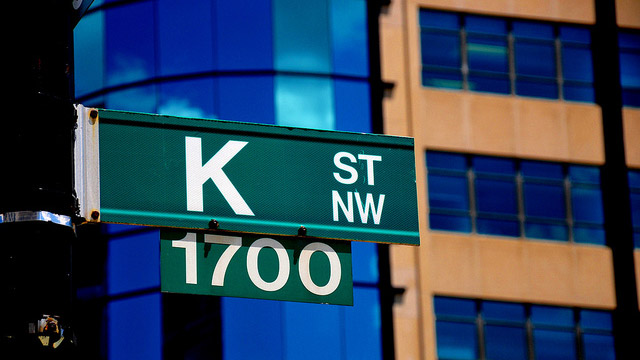This post first appeared at Center for Responsive Politics.

December’s cromnibus spending package was a bonanza for lobbyists, with the defense, banking, and health care industries especially flexing their influence muscle to make sure their priorities were on the agenda.
The Consolidated and Further Continuing Appropriations Act (H.R. 83), or Cromnibus, which combined a short-term continuing resolution on Department of Homeland Security funding with broader and longer-term omnibus spending approval, was lobbied by more than 204 K Street firms representing at least 676 individual clients, according to a Center for Responsive Politics analysis of last year’s fourth-quarter lobbying reports. In the end, the lame duck bill was hands-down the most heavily lobbied piece of legislation in 2014, triggering spending by a total of 852 clients. For comparison, the No. 2 bill last year had 475 interested parties sending out checks to lobbying firms.
Whether lobbying on Obamacare provisions, pension benefits, or Dodd-Frank, some companies had more obvious interest in the spending package than others.
Blue Cross/Blue Shield, the health insurer, wanted to change an Obamacare provision that required its associated companies to spend 85 percent of premiums on medical expenses or be forced to send a rebate to consumers. The cromnibus changed the way that 85 percent is counted up: The “blue” companies can now count money spent on improvements to health care quality toward that goal. Blue Cross/Blue Shield has lobbied on the language since the Affordable Care Act was enacted in 2010.
Another heavy lifter on the spending package was the United Parcel Service, which hired four firms and mentioned the bill in lobbying reports five times last quarter. Labor groups had expressed concern that the company would become exempt from certain obligations to fund benefits under some provisions of the bill — part of a larger debate on whether multiemployer pension plans could cut benefits to stay solvent.
Citigroup took things to another level, and authored its very own provision in the cromnibus that undermined portions of the Dodd-Frank Act regulating derivatives trading — a contentious issue in the bill’s passage that prompted the likes of Sen. Elizabeth Warren (D-MA) to take a vocal stand against loosening the regulations.
Taking it to the bank
The lobbying firm that represented more clients than any other on the bill was Potomac Advocates. Potomac, a relatively small firm (it reported $740,000 in lobbying income in 2014) was paid by 20 clients with cromnibus concerns, a roster of mostly defense and defense technology contractors, like L-3 Communications, Raytheon Co., General Dynamics, and Ball Corp.
At least two of those clients sought to influence the legislation’s passage with more than one firm.
General Dynamics, a major aerospace and defense company, hired a total of four firms to lobby on the cromnibus as a part of its $10.7 million 2014 lobbying budget. Raytheon’s $6.3 million lobbying payroll included two firms working on the package.
Tarplin, Downs & Young tied with Crossroads Strategies for second place after Potomac Advocates, representing 19 clients each. Crossroads, with $5.6 million in lobbying income in 2014, had a diverse group of clients that included Google, the National Rifle Association, DirecTV, and Verizon. Tarplin, which brought in nearly $6 million last year, represented primarily health care and pharmaceutical companies like Blue Cross/ Blue Shield and Pfizer.
The scope of the legislation’s impact brought in interest from all over, but the firms with the longest list of clients for the cromnibus trended overall toward the defense and healthcare/pharmaceutical industries is consistent with data for the individual organizations as well–though.
Blue Cross/Blue Shield came out on top as far as individual clients are concerned; it mentioned the spending package 15 times in lobbying filings — more than any other company. That’s six more mentions than the next in line — the American Hospital Association, a trade group — and 10 more mentions of the bill than were made by third place bio-pharmaceutical company Emergent Biosolutions.
Lockheed Martin, a defense and aerospace giant with a long history with K Street, lobbied on the cromnibus as well. The company listed three firms that lobbied the bill on its behalf, and mentioned the spending package four times in lobbying disclosures.


